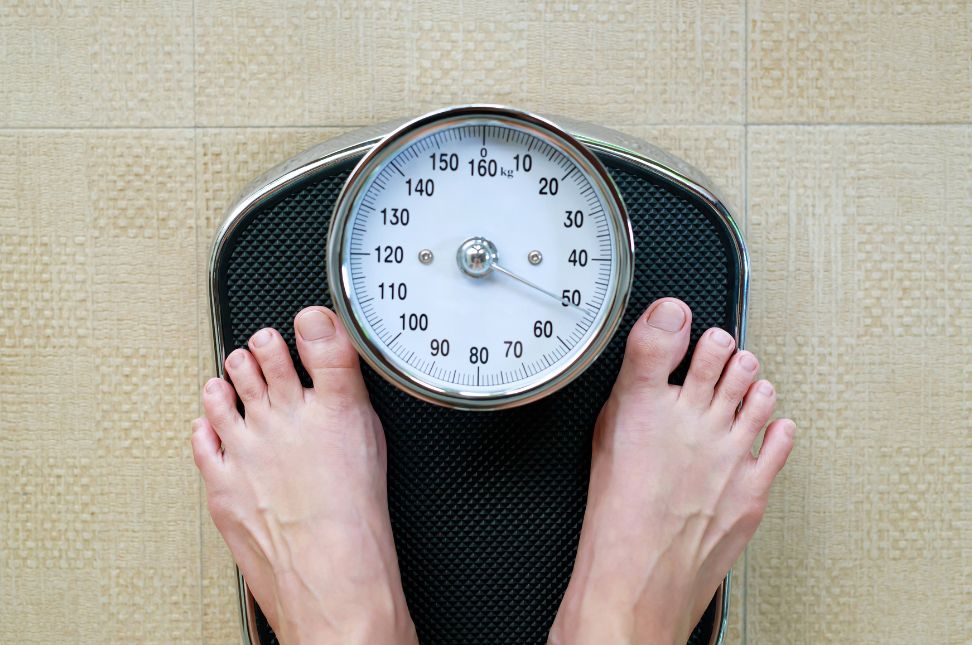When it comes to achieving a healthier body, many people seek ways to lose weight fast. While rapid weight loss can be challenging, it’s possible with the right strategies. In this article, we’ll explore safe and effective methods to help you shed those extra pounds quickly. Remember, it’s crucial to prioritize your health and consult with a healthcare professional before making significant changes to your diet or exercise routine.
Understanding Weight Loss
Before diving into the specifics of how to lose weight fast, it’s essential to understand the basics of weight loss. Weight loss occurs when you consume fewer calories than your body needs for energy. This creates a calorie deficit, leading your body to burn stored fat for fuel. A combination of dietary changes, increased physical activity, and lifestyle modifications can help you achieve this deficit and lose weight fast.
Setting Realistic Goals
Setting realistic and achievable goals is crucial for successful weight loss. Instead of aiming to lose weight fast in an unsustainable way, focus on gradual progress that promotes long-term health. Aim to lose 1-2 pounds per week, which is considered a safe and sustainable rate. Rapid weight loss can sometimes lead to muscle loss, nutrient deficiencies, and other health issues.
Dietary Changes for Rapid Weight Loss
Diet plays a significant role in weight loss. Here are some dietary changes to help you lose weight fast:

1. Reduce Caloric Intake
To lose weight fast, you need to create a calorie deficit. Start by tracking your daily caloric intake and gradually reducing it. Aim to cut 500-1000 calories per day to lose 1-2 pounds per week. Focus on consuming nutrient-dense foods that keep you full and satisfied.
2. Eat More Protein
Protein is essential for maintaining muscle mass and promoting satiety. Include lean proteins such as chicken, fish, eggs, tofu, and legumes in your diet. Protein can help you feel fuller for longer, reducing overall calorie intake.
3. Cut Down on Carbohydrates
Reducing carbohydrate intake can help you lose weight fast. Focus on cutting back on refined carbs such as white bread, pasta, and sugary snacks. Instead, choose complex carbohydrates like whole grains, vegetables, and fruits.
4. Increase Fiber Intake
Fiber-rich foods can help you feel full and satisfied, reducing the likelihood of overeating. Include plenty of vegetables, fruits, legumes, and whole grains in your diet to boost your fiber intake.
5. Drink Plenty of Water
Staying hydrated is essential for overall health and weight loss. Drinking water before meals can help reduce appetite and prevent overeating. Aim to drink at least 8 glasses of water per day.
6. Avoid Sugary Drinks
Sugary drinks like soda, fruit juices, and energy drinks are high in empty calories. Cutting these out can significantly reduce your calorie intake and help you lose weight fast.
Effective Exercise for Quick Weight Loss
Exercise is a key component of weight loss. Combining cardiovascular exercises with strength training can help you lose weight fast and maintain muscle mass.

1. High-Intensity Interval Training (HIIT)
HIIT involves short bursts of intense exercise followed by rest or low-intensity exercise. This type of training can burn a significant number of calories in a short time and boost your metabolism. Incorporate HIIT workouts into your routine 2-3 times per week.
2. Strength Training
Strength training helps build and maintain muscle mass, which can increase your resting metabolic rate. Include weightlifting, bodyweight exercises, or resistance band workouts in your routine at least 2-3 times per week.
3. Cardiovascular Exercise
Cardio exercises such as running, cycling, swimming, and brisk walking can help you burn calories and improve cardiovascular health. Aim for at least 150 minutes of moderate-intensity cardio or 75 minutes of high-intensity cardio per week.
4. Stay Active Throughout the Day
Incorporate more physical activity into your daily routine. Take the stairs instead of the elevator, walk or bike to work, and engage in active hobbies. Every bit of movement counts toward your overall calorie burn.
Lifestyle Modifications for Rapid Weight Loss
In addition to diet and exercise, certain lifestyle changes can support your weight loss journey:
1. Get Enough Sleep
Lack of sleep can disrupt hormones that regulate hunger and appetite, leading to overeating. Aim for 7-9 hours of quality sleep per night to support your weight loss efforts.
2. Manage Stress
Stress can lead to emotional eating and weight gain. Practice stress management techniques such as meditation, yoga, deep breathing exercises, or spending time in nature to reduce stress levels.
3. Plan Your Meals
Meal planning can help you make healthier food choices and avoid impulsive eating. Prepare your meals in advance and have healthy snacks on hand to prevent reaching for unhealthy options.
4. Monitor Your Progress
Keep track of your weight loss progress by weighing yourself regularly and taking body measurements. This can help you stay motivated and make necessary adjustments to your diet and exercise routine.
5. Seek Support
Having a support system can make a significant difference in your weight loss journey. Join a weight loss group, work with a personal trainer, or find a workout buddy to stay accountable and motivated.
Potential Risks of Rapid Weight Loss
While the desire to lose weight fast is understandable, it’s essential to be aware of the potential risks associated with rapid weight loss:
- Nutrient Deficiencies: Rapid weight loss can lead to deficiencies in essential nutrients, affecting overall health.
- Muscle Loss: Losing weight too quickly can result in muscle loss, which can lower your metabolism.
- Gallstones: Rapid weight loss increases the risk of developing gallstones.
- Dehydration: Fast weight loss can lead to dehydration, especially if you’re not drinking enough water.
- Metabolic Slowdown: Extreme calorie restriction can slow down your metabolism, making it harder to lose weight in the long run.
Conclusion
Achieving your goal to lose weight fast requires a balanced approach that combines dietary changes, regular exercise, and lifestyle modifications. While quick results can be motivating, it’s essential to prioritize your health and focus on sustainable weight loss methods. Set realistic goals, make healthy choices, and stay consistent in your efforts. Remember, consulting with a healthcare professional before starting any weight loss program is crucial to ensure it’s safe and effective for your individual needs.
By following these strategies, you can achieve your weight loss goals and improve your overall well-being. Embrace the journey and celebrate your progress along the way.




